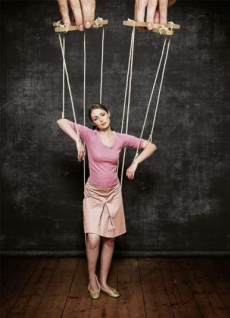
Around the 1950s and 1960s a new style of criminological theory emerged, known as control theory. This flips the question that most criminologists ask about why people decide to commit crime, and instead asks why people usually conform and do not commit crimes. By understanding this, we may be able to better understand what is going wrong in the case of criminals. Control theory sees crime as a normal occurrence, since it is profitable (useful to us) and can also seem fun, and therefore naturally people are likely to act in a criminal way. However, most people still don’t commit crimes, despite their positive outcomes, because we are under societal control. The only way of understanding how we can stop criminality is by understanding why most people are restricted from behaving on criminal instincts in this manner and extending this control to criminals.
There are various different forms of control in our life. To begin there are external, obvious rules set out by society, via methods such as the law and by teachers in schools. Because we know that there will be a punishment for breaking these rules, we may decide that the negative results of committing a crime outweigh the positive ones and therefore do not want to proceed. However, some control mechanisms are not so obvious. One such control mechanism is our family and friends, since we wish to impress them and to make them proud of us and so we do not commit crime to avoid disappointing them. Furthermore, we have an inbuilt control system whereby we feel guilty when we do something wrong, such as commit a crime. This then makes us feel anxious and stressed. Because of this we try to keep to the normal social order. Perhaps then, those without a strong relationship with their family, or friends who do not act as a moral control system are more likely to commit crime. Moreover, those who have not developed their own strong moral compass may also be predisposed to criminality.
Shaw and McKay noticed in 1929 that crimes tend not to be randomly distributed across whole cities, but are more concentrated in certain zones. They also noted that these were not necessarily the more densely populated or urbanised areas, so there had to be some other explanation for the specific concentration of crime reports in those areas. They suggested that these areas had social disorganisation. This meant that there were no agreed upon values across the areas, and there was no community solidarity. The power of community and family ties were weakened and there was less control over potential criminals.
Reiss therefore went on to suggest that delinquency occurs when personal and social controls on an individual fail. He posed that strong family bonds are important in restraining individuals from crime. This would mean that parents could better control their children and that children would identify their parents as role-models. This would then encourage the development of personal self-controls such as morality as well. Reiss also argued that the influence of peers is important, though not in the way that other theorists suggested. He believed that rather than children with low self-control simply not being able to stop themselves joining a delinquent peer group, children with low self-control would merely find others like themselves and together an unhealthy peer group would form.
With this knowledge, the best thing that we can do to stop ourselves and others from turning to criminal lifestyles is to ensure strong bonds with family members and the community and to develop a personal sense of morality, as these can act as controls against us doing immoral things. In the next article I’ll look at a more in-depth theory of self-control and how it builds on what is discussed above.
Image from: http://theunboundedspirit.com/wp-content/uploads/2012/05/social-control1.jpg

0 Comment:
Be the first one to comment on this article.